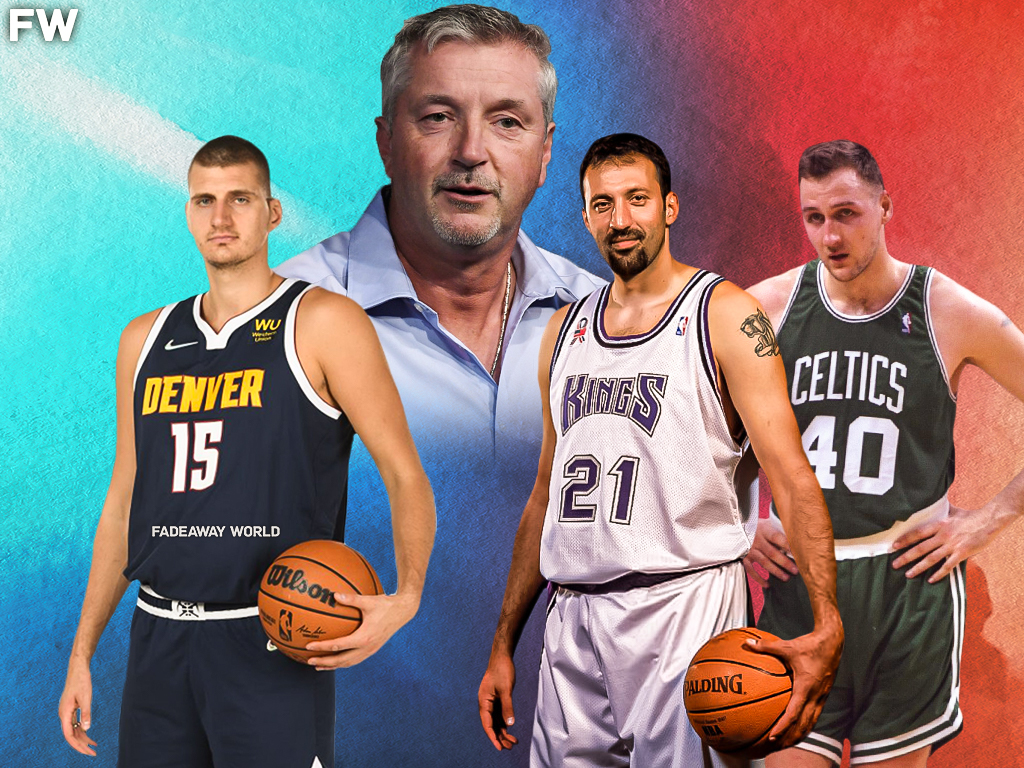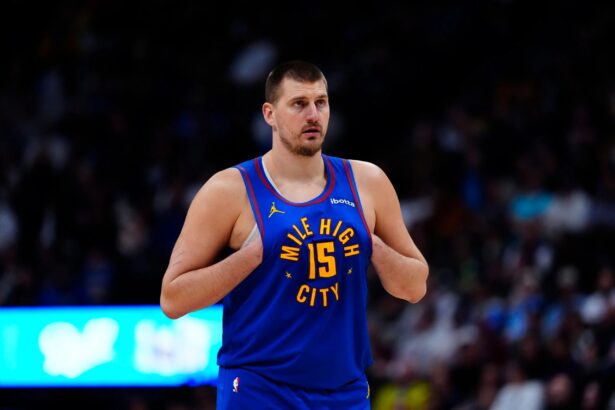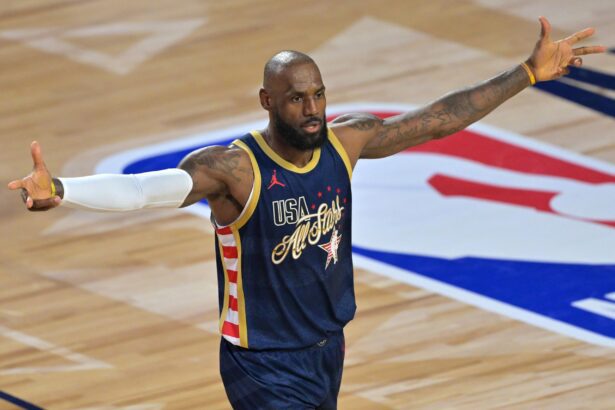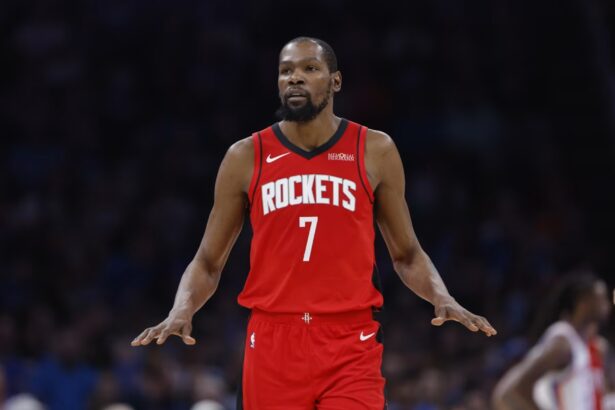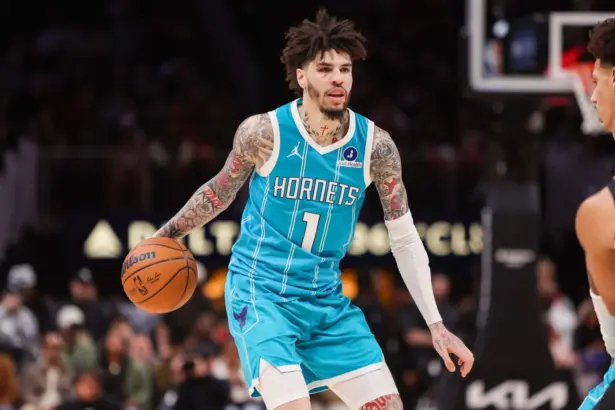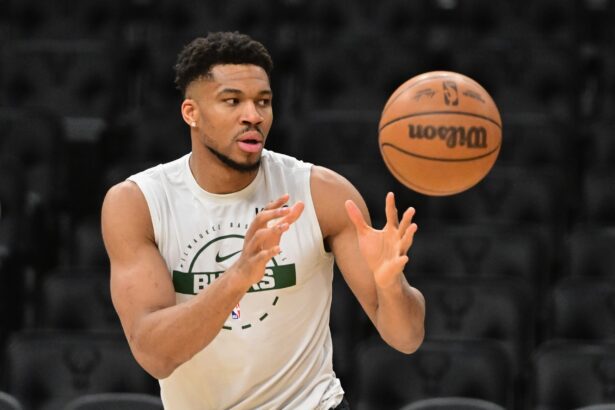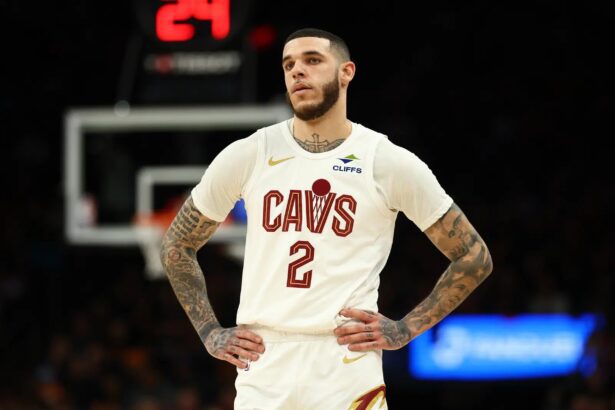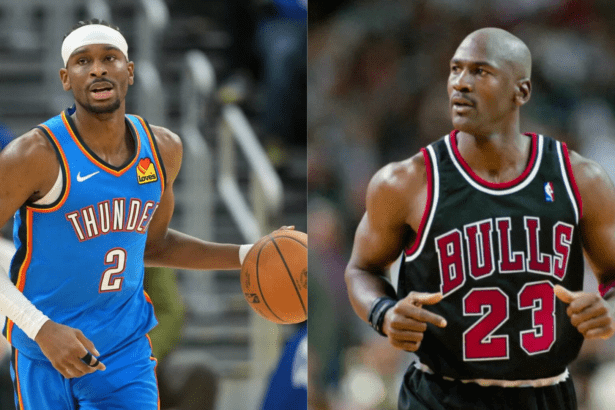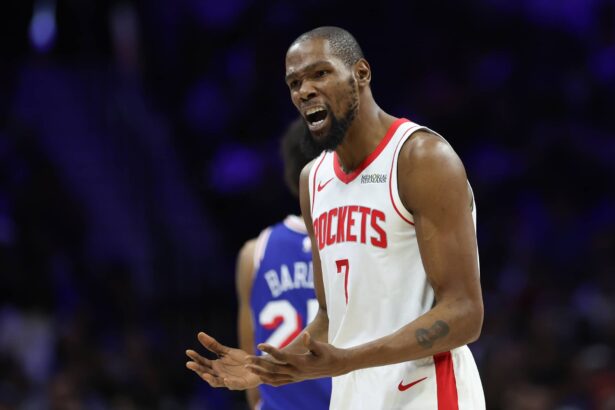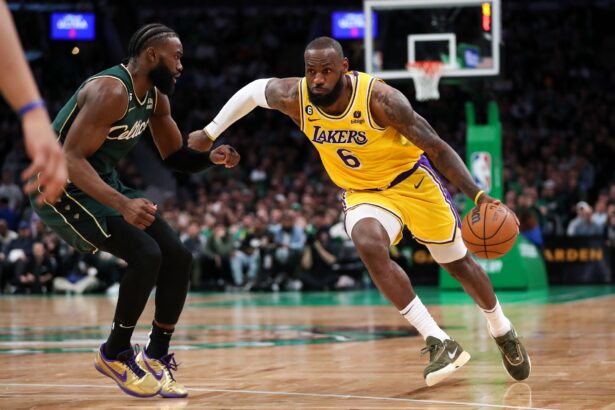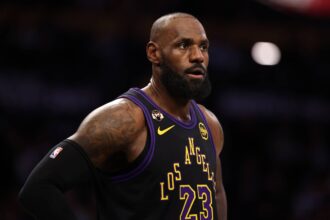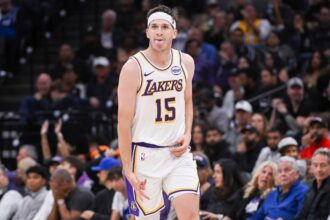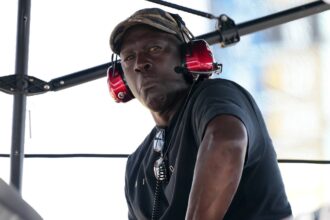Toni Kukoc’s recent assertion that Nikola Jokic hasn’t yet reached the level of Vlade Divac or Dino Radja has sparked debates within the basketball community. Despite Jokic’s undeniable prowess on the court and his status as one of the top players in the world, Kukoc believes he hasn’t surpassed the legacy of these Balkan basketball icons.
“Jokic is not an athlete, he does not run fast and does not jump like the American players from college, but he has an incredible quality to introduce the game into a rhythm that suits him.”
“He scores, assists, rebounds, all in his own fashion. When he gets the game into a rhythm that suits him, then he can do whatever he wants. Maybe he will be, but he is not yet. Despite all the statistics, Jokic is not at the level of Divac and Radja in the center position.”
“30 years ago, Divac surprised America with how he handled the ball with his height, Radja – with how he could catch the ball under the basket and reach the other side to score.”
“Anyone who remembers Sabonis knows how he dominated as a center. It’s a shame that his Achilles tendons bothered him so much. Jokic has improved a lot and can improve his game a lot more.”
Kukoc’s argument hinges on the unique skill sets and impact that Divac and Radja brought to the game during their respective eras. He reminisced about Divac’s ability to handle the ball with finesse despite his towering stature, which astonished American audiences, and Radja’s agility in scoring from various positions on the court.
While acknowledging Jokic’s improvements and his remarkable ability to dictate the flow of the game, Kukoc maintains that he hasn’t eclipsed the accomplishments of Divac and Radja. He suggests that Jokic still has room for growth and refinement in his game, indicating that he has yet to fully realize his potential.
Divac and Radja, both revered members of the Naismith Memorial Basketball Hall of Fame, made significant impacts during their NBA careers. Divac’s longevity and versatility, coupled with Radja’s scoring prowess and versatility, cemented their places in basketball history.
However, some observers question Kukoc’s assessment, pointing to Jokic’s statistical dominance and unparalleled skill set. As a two-time NBA MVP and the reigning Finals MVP, Jokic has demonstrated an ability to excel in all facets of the game, from scoring and rebounding to playmaking and leadership.
Ultimately, Kukoc’s remarks serve as a reminder of the rich basketball legacy within the Balkan region and the enduring impact of players like Divac and Radja. While Jokic continues to carve out his own legacy, the debate over his place among basketball’s elite will undoubtedly persist, fueled by contrasting opinions and interpretations of his achievements.
Comparison Of Nikola Jokic, Vlade Divac And Dino Radja’s Career
Nikola Jokic, Vlade Divac, and Dino Radja, three towering figures in Serbian and Yugoslavian basketball history, each left an indelible mark on the sport, albeit in different leagues and eras.
Nikola Jokic, the youngest of the trio, has already etched his name in NBA lore. His journey from being a second-round draft pick in 2014 to a two-time NBA MVP and a champion with the Denver Nuggets in 2022 showcases his extraordinary talent and work ethic.
Jokic’s unique blend of size, skill, and basketball IQ has redefined the center position in the modern NBA, making him one of the most versatile and dominant players in the league today. His career averages of 20.9 points, 10.7 rebounds, and 6.9 assists per game underscore his impact on the game.
Vlade Divac and Dino Radja, on the other hand, blazed trails for European players in the NBA during the 1990s. Divac, known for his exceptional passing and hustle, enjoyed a successful 16-year career in the NBA, winning a FIBA World Championship in 1990 before transitioning to the NBA, where he became an NBA All-Star. Divac averaged 11.8 points, 8.2 rebounds, and 3.8 assists per game over his NBA career.
Dino Radja, renowned for his physical scoring prowess, was a key member of Yugoslavia’s golden generation, clinching a FIBA World Championship in 1990 and an Olympic Silver Medal in 1992 (With Croatia). He later made his mark in the NBA, earning acclaim for his tenacity and offensive prowess during his tenure with the Boston Celtics. Radja averaged 16.7 points, 8.4 rebounds, and 1.6 assists per game during his NBA career.
While Jokic’s NBA achievements overshadow those of Divac and Radja statistically, it’s essential to recognize the different eras and leagues in which they played. Jokic thrives in the fast-paced, perimeter-oriented game of today’s NBA, whereas Divac and Radja excelled in a more physical, post-centric era.
In conclusion, while each player may have reigned supreme in their respective leagues and eras, their contributions to Serbian and Yugoslavian basketball and the sport as a whole are undeniable. Whether dominating the NBA hardwood or representing their country on the international stage, Jokic, Divac, and Radja have all left an indelible legacy that continues to inspire generations of basketball players around the world.
How Long Will The Modern Generation Hating Continue?
The animosity between older-generation basketball stars and modern-day superstars has become a recurring theme in NBA discourse, with recent comments from Toni Kukoc adding fuel to the fire. Kukoc’s assertion that Nikola Jokic hasn’t surpassed the legacies of Vlade Divac and Dino Radja has reignited the debate over generational comparisons and the perceived decline of the game.
Critics argue that this pattern of disparagement reflects a deeper disconnect between past and present eras in basketball. The older generation, emboldened by their own achievements and legacies, often downplay the talents and accomplishments of today’s players. Whether it’s questioning their skills, work ethic, or impact on the game, these critiques perpetuate a narrative of resentment and skepticism toward the modern generation.
However, such sentiments fail to acknowledge the evolution of basketball and the unique challenges faced by players in different eras. While Divac and Radja were trailblazers in their time, Jokic’s dominance reflects the evolution of the game and the changing demands placed on big men in today’s NBA. His combination of size, skill, and basketball IQ has redefined the center position and garnered widespread acclaim from fans and analysts alike.
The ongoing saga of older generation basketball stars criticizing the modern era has reached new heights with recent comments from Charles Barkley and Shaquille O’Neal echoing Kukoc’s sentiments. Their remarks add to a narrative of discontent and skepticism towards today’s NBA superstars.
Barkley’s recent assertion that millennials are “spoiling the game” of basketball reflects a sentiment shared by many of his contemporaries. This critique suggests a belief that today’s players lack the toughness and competitive spirit that defined previous generations. It’s a sentiment that has been echoed by Shaquille O’Neal, who recently claimed that LeBron James doesn’t instill fear in opponents like Michael Jordan or Kobe Bryant did.
The criticism levied against modern-day stars like Jokic, LeBron, and others is often rooted in nostalgia and a longing for the glory days of the past. However, clinging to outdated notions of greatness only serves to undermine the achievements of today’s players and perpetuate unnecessary divisions within the basketball community.
Ultimately, the longevity and success of players like Jokic and LeBron serve as a testament to their talent, dedication, and adaptability in an ever-changing game. While debates over generational supremacy will continue to rage on, it’s essential to appreciate the contributions of all players and recognize that greatness transcends eras. As basketball continues to evolve, so too should our appreciation for the diverse talents and styles that define the sport.
Thank you for being a valued reader of Fadeaway World. If you liked this article, please consider following us on Google News. We really appreciate your support.

